Endometritis, or inflammation of the lining of the uterus, can impair a mare’s ability to get pregnant. Currently the gold standard diagnostic test is an endometrial biopsy, but the time to receive results can be variable. This clinical study evaluates a new type of diagnostic test, a multiplex assay, in its ability to detect endometritis in mares in a timely, less invasive fashion as compared to an endometrial biopsy.
Eligibility: Mares in estrus needing a breeding soundness evaluation, especially if there has been trouble getting pregnant
Compensation: The study will pay for the endometrial cytology and biopsy. The client is responsible for the breeding soundness exam fee and uterine culture.
Owner Responsibilities: You are responsible to allow your mare to have a breeding soundness exam including rectal palpation, transrectal ultrasound, low-volume uterine lavage and an endometrial biopsy. The appointment will take about an hour.
Principal Investigator: Dr. Mariana Diel de Amorim, DVM, DVSc, PhD, DACT
Contact: Please call any member of the reproductive medicine team at 607.253.3060 or email Dr. Mariana Diel de Amorim (md649) or Dr. Jennine Lection (jml586)



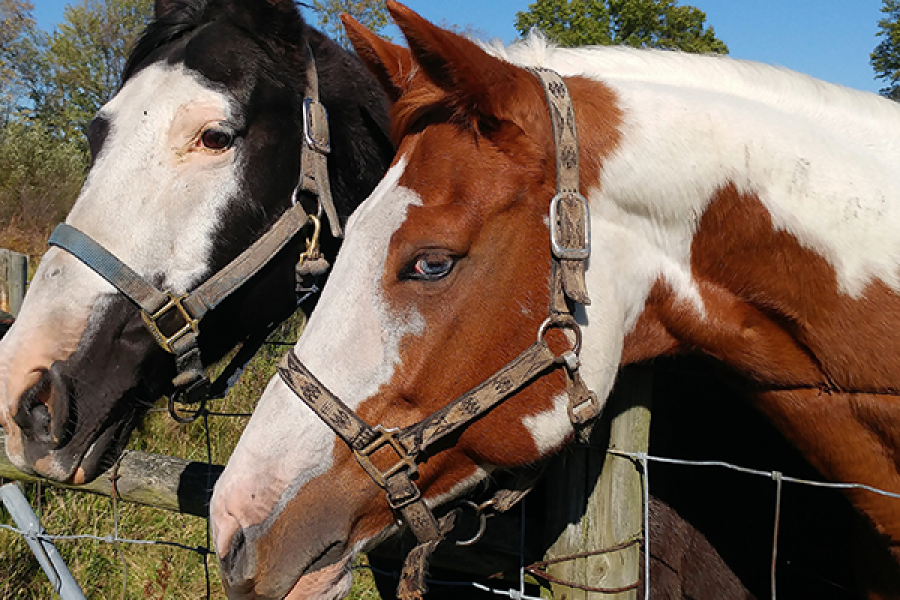
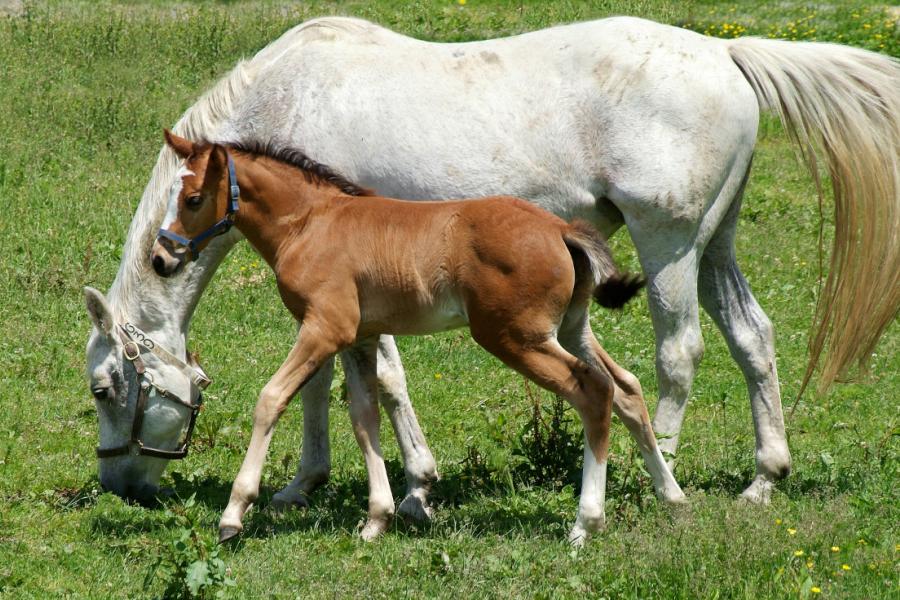
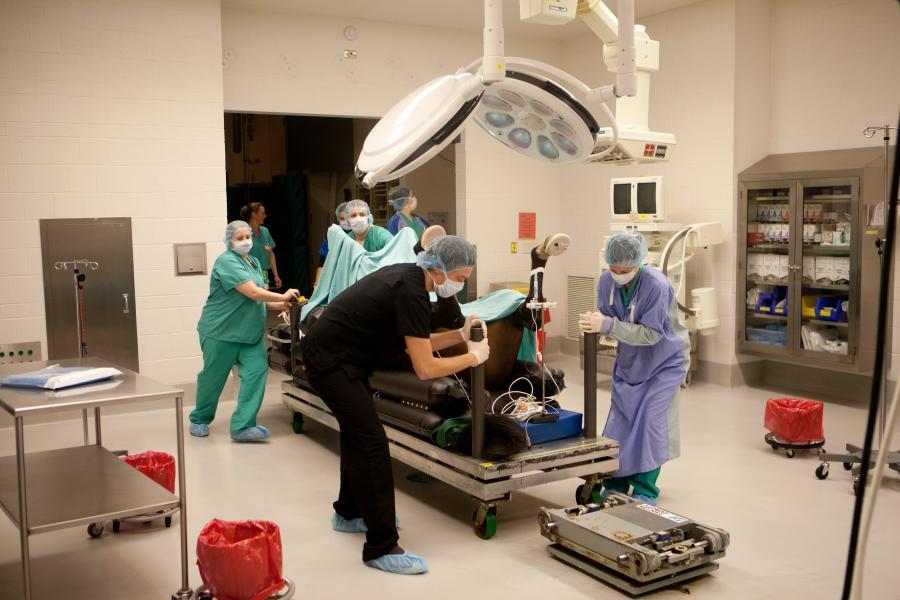
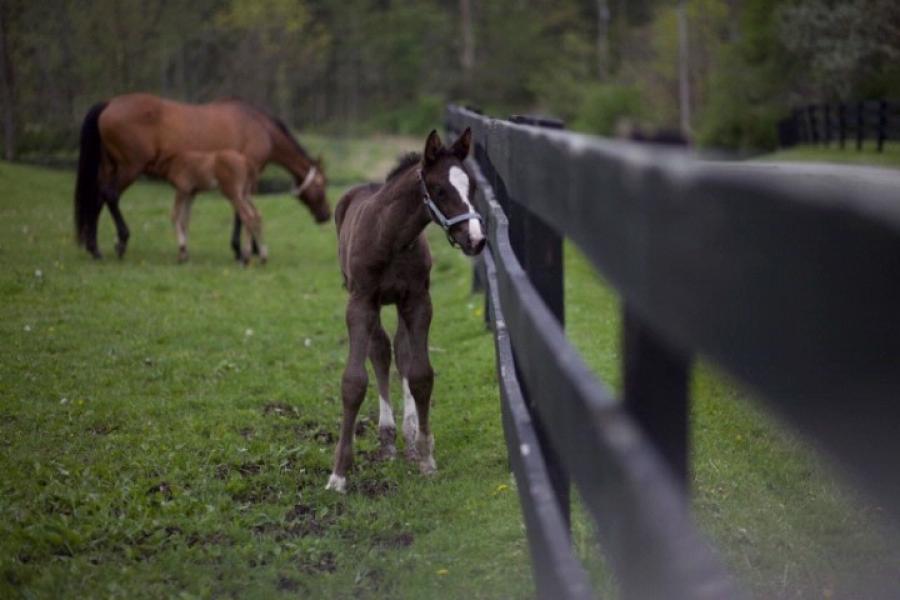
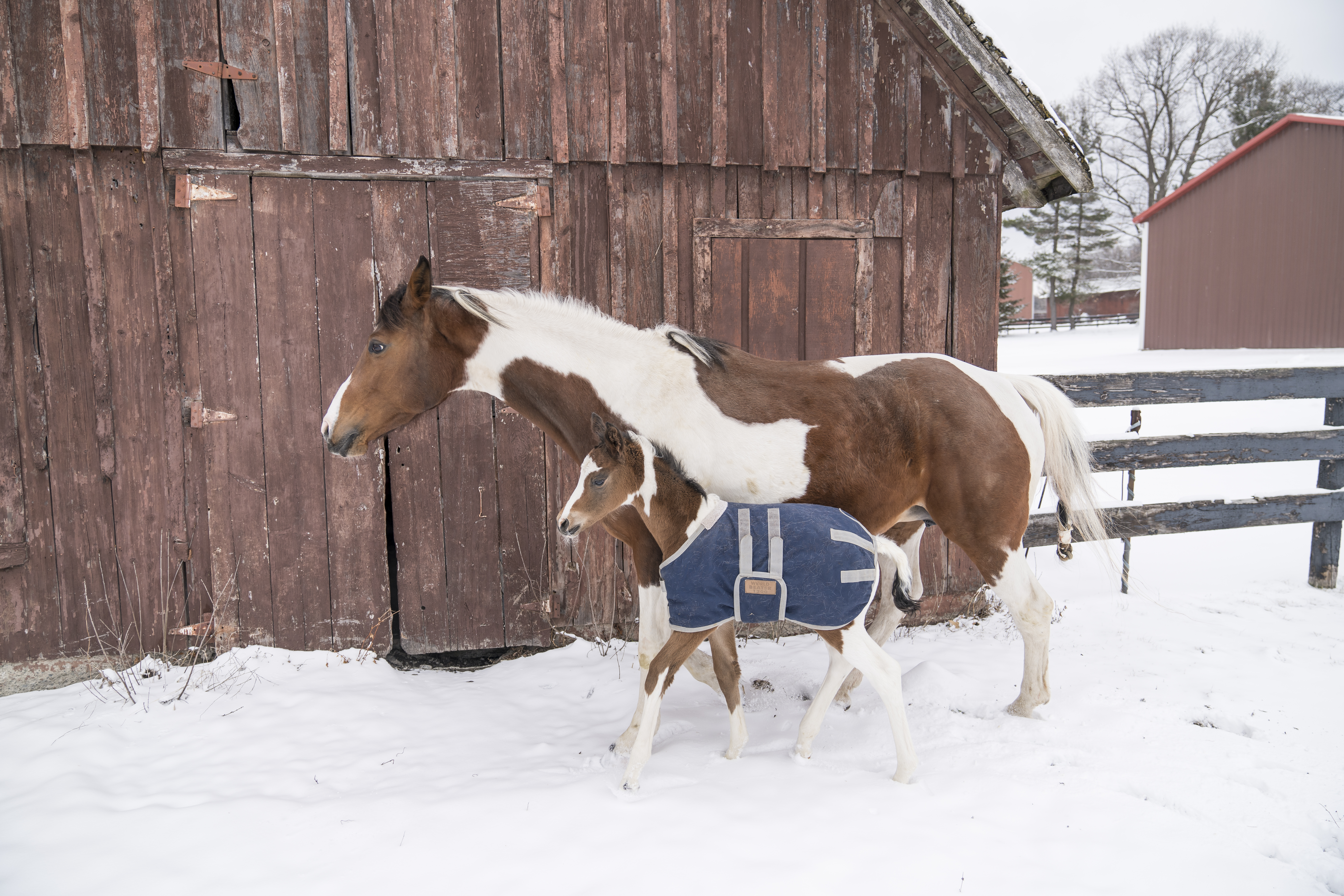 The Theriogenology Service at the Cornell University Hospital for Animals provides reproductive medicine services for horses including breeding management, assisted reproductive techniques, semen freezing and supervision of high-risk pregnancies and foaling, as well as medical and surgical treatment for conditions related to the reproductive system. Our staff includes two board-certified veterinarians who collaborate with other veterinarians across the Northeast .
The Theriogenology Service at the Cornell University Hospital for Animals provides reproductive medicine services for horses including breeding management, assisted reproductive techniques, semen freezing and supervision of high-risk pregnancies and foaling, as well as medical and surgical treatment for conditions related to the reproductive system. Our staff includes two board-certified veterinarians who collaborate with other veterinarians across the Northeast .
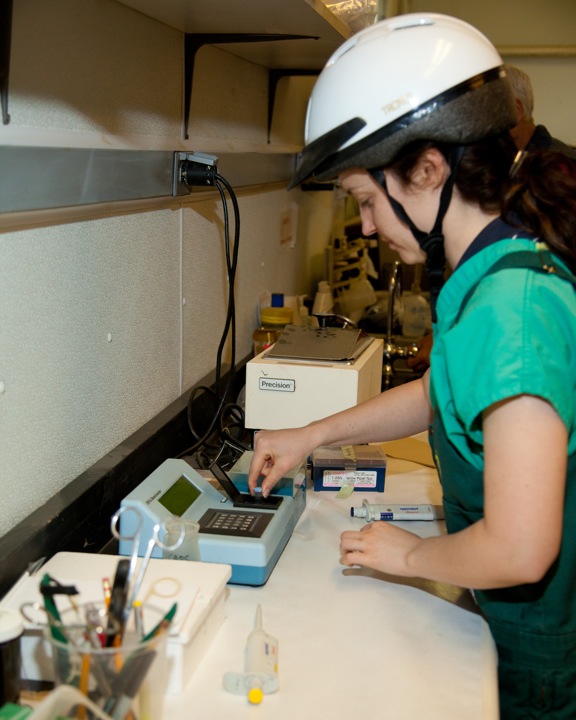
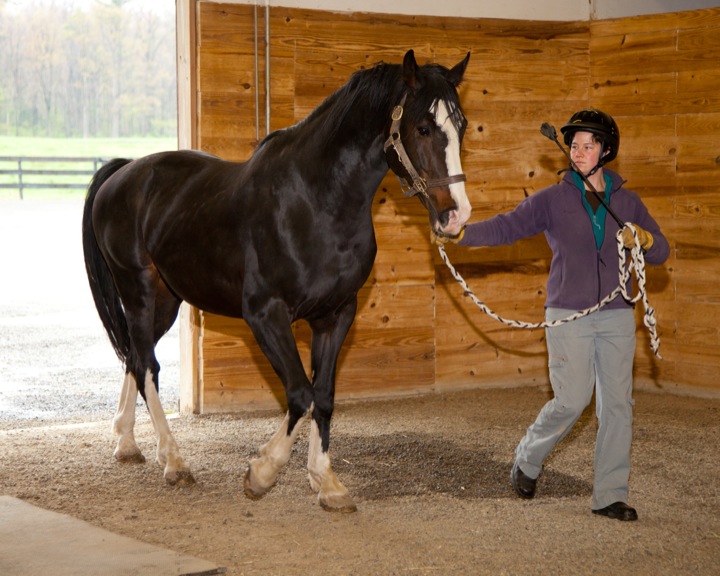 Your scheduled visit to the Theriogenology Service at the Cornell University Hospital for Animals begins when you pull up to the circular driveway in front of the Large Animal Hospital. Please park your vehicle in the driveway, come into the reception area and check in at the front desk. After a small amount of paperwork, a technician or student will help you unload and walk your horse to its assigned stall.
Your scheduled visit to the Theriogenology Service at the Cornell University Hospital for Animals begins when you pull up to the circular driveway in front of the Large Animal Hospital. Please park your vehicle in the driveway, come into the reception area and check in at the front desk. After a small amount of paperwork, a technician or student will help you unload and walk your horse to its assigned stall. 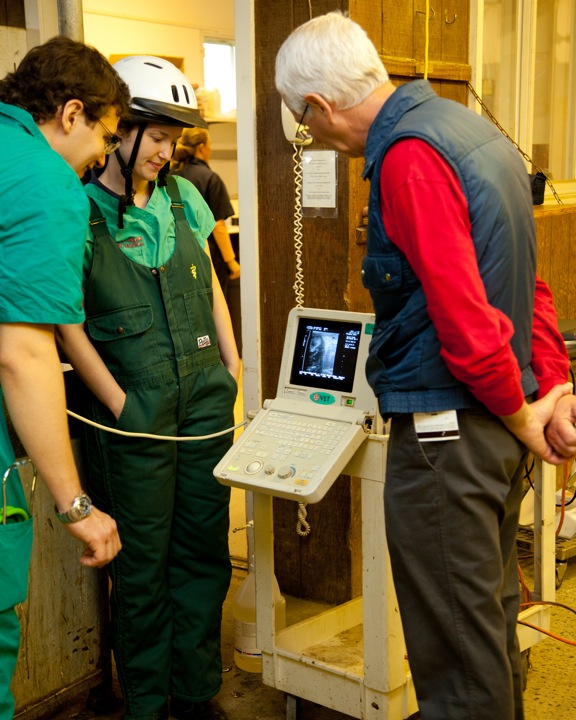 After your vehicle is parked, a technician and student will work together to conduct an examination of your horse and ask you questions about the animal's past medical, surgical, travel, vaccination and worming history and current health. The student will leave to report their findings to a resident or faculty member.
After your vehicle is parked, a technician and student will work together to conduct an examination of your horse and ask you questions about the animal's past medical, surgical, travel, vaccination and worming history and current health. The student will leave to report their findings to a resident or faculty member.
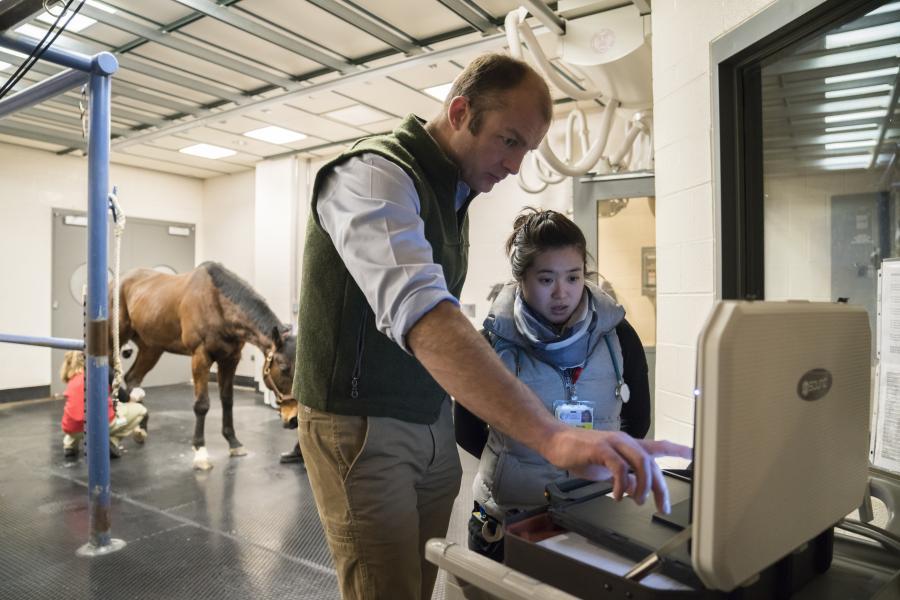
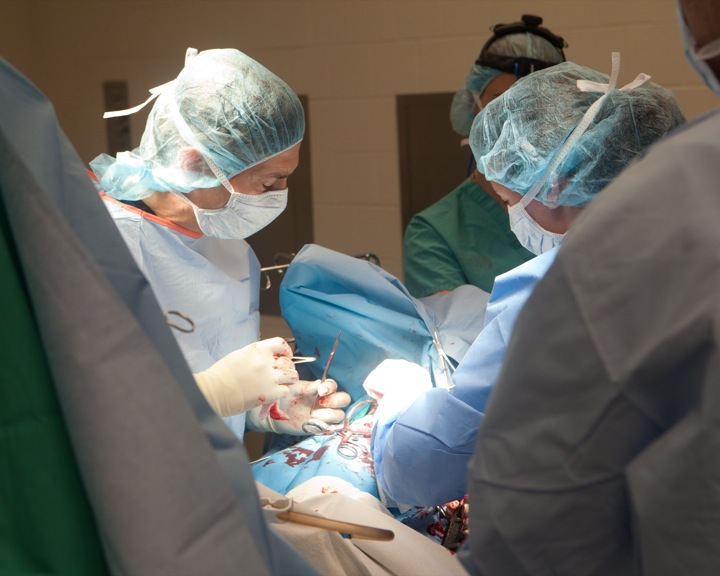 The Orthopedics Service at Cornell University Hospital for Animals is nationally and internationally recognized as a leader in the treatment of musculoskeletal conditions in horses. Our staff includes board-certified veterinarians who have pioneered many of the approaches used for diagnosis and treatment of joint and bone disorders. We also offer regenerative medicine treatments including stem cells and platelet rich plasma to compliment traditional orthopedic treatments.
The Orthopedics Service at Cornell University Hospital for Animals is nationally and internationally recognized as a leader in the treatment of musculoskeletal conditions in horses. Our staff includes board-certified veterinarians who have pioneered many of the approaches used for diagnosis and treatment of joint and bone disorders. We also offer regenerative medicine treatments including stem cells and platelet rich plasma to compliment traditional orthopedic treatments.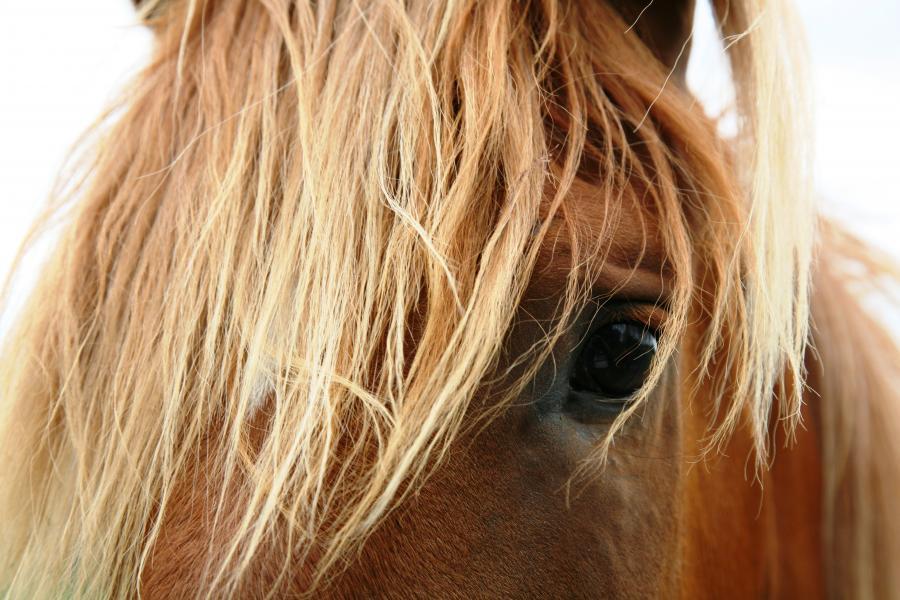
 Often times, you may leave your vehicle and trailer right in the driveway but, if the lot is full, the receptionist will provide you with a parking pass and directions to nearby longer-term parking where overnight parking for trucks and trailers is also available.
Often times, you may leave your vehicle and trailer right in the driveway but, if the lot is full, the receptionist will provide you with a parking pass and directions to nearby longer-term parking where overnight parking for trucks and trailers is also available.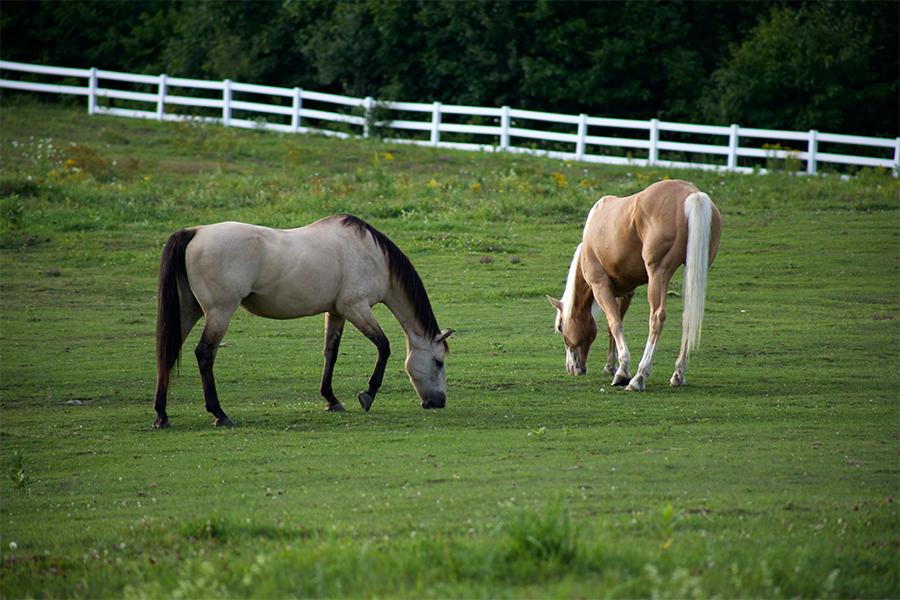
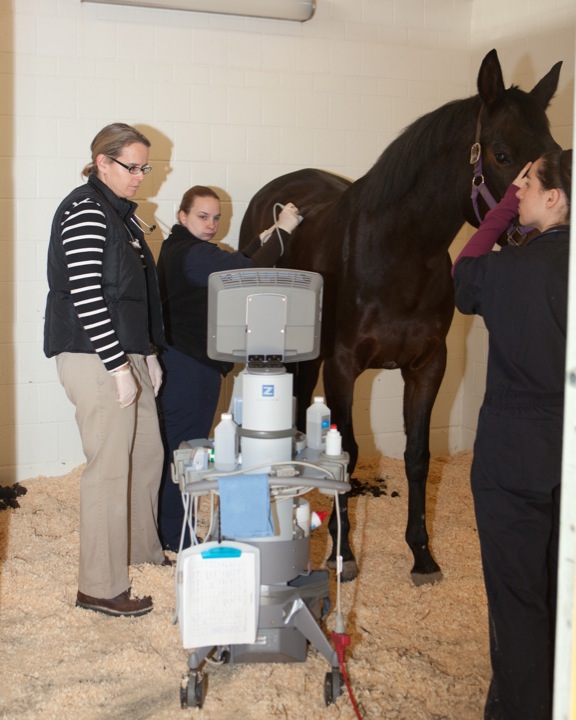 The Internal Medicine Service at the Cornell University Hospital for Animals diagnoses and provides treatment for horses with a wide spectrum of life-threatening health conditions. Our staff includes four board-certified veterinarians who have pioneered many of the approaches used for diagnoses and treatment of diverse medical disorders used in veterinary clinics across the country. Our faculty specializes in a wide range of health conditions including metabolic, infectious, endocrine, hematologic, gastrointestinal, liver, renal and respiratory disorders.
The Internal Medicine Service at the Cornell University Hospital for Animals diagnoses and provides treatment for horses with a wide spectrum of life-threatening health conditions. Our staff includes four board-certified veterinarians who have pioneered many of the approaches used for diagnoses and treatment of diverse medical disorders used in veterinary clinics across the country. Our faculty specializes in a wide range of health conditions including metabolic, infectious, endocrine, hematologic, gastrointestinal, liver, renal and respiratory disorders. 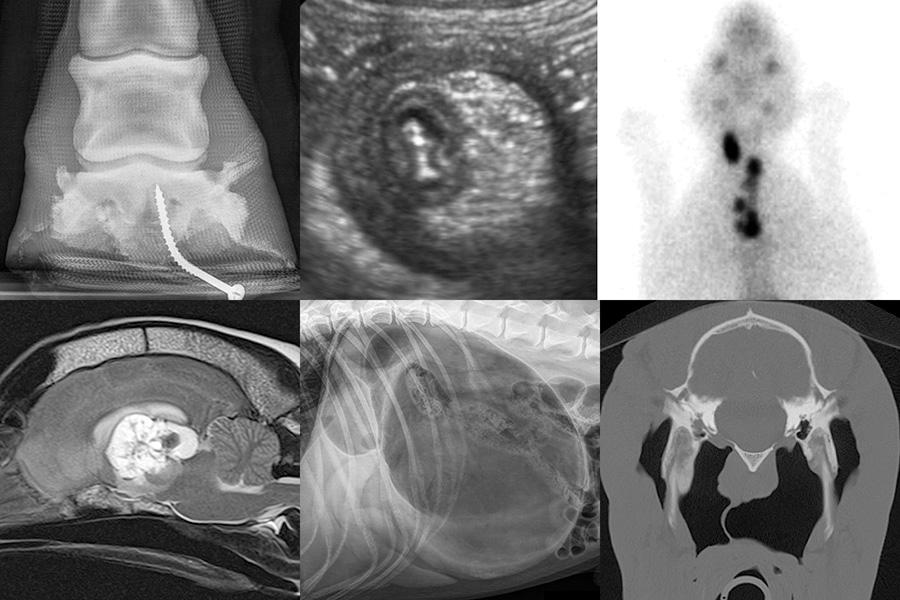
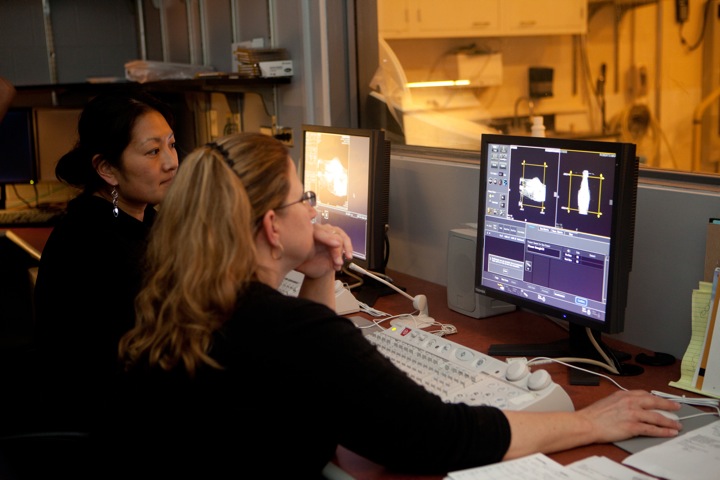 The Imaging Service at the Cornell University Hospital for Animals takes pride in providing excellent patient care and customer service.
The Imaging Service at the Cornell University Hospital for Animals takes pride in providing excellent patient care and customer service.
 Your animal may need to be sedated or anesthetized to prevent movement during imaging. We do this when we anticipate that the procedure might be uncomfortable or painful, if the animal is anxious and whenever we expect that not holding perfectly still would defeat the procedure – motion is the bane of imaging! We work with your primary Cornell veterinarian to decide which sedative or anesthetic is most appropriate. Radiographs and ultrasound are often done awake, sometimes with a sedative, and occasionally when necessary we manually restrain the animal. We minimize manually holding animals for radiographs to limit our own exposure to x-radiation. Equine patients are always under general anesthesia for CT and MRI. Anesthesiologists are available to consult on all cases and ensure the safety of your animal.
Your animal may need to be sedated or anesthetized to prevent movement during imaging. We do this when we anticipate that the procedure might be uncomfortable or painful, if the animal is anxious and whenever we expect that not holding perfectly still would defeat the procedure – motion is the bane of imaging! We work with your primary Cornell veterinarian to decide which sedative or anesthetic is most appropriate. Radiographs and ultrasound are often done awake, sometimes with a sedative, and occasionally when necessary we manually restrain the animal. We minimize manually holding animals for radiographs to limit our own exposure to x-radiation. Equine patients are always under general anesthesia for CT and MRI. Anesthesiologists are available to consult on all cases and ensure the safety of your animal.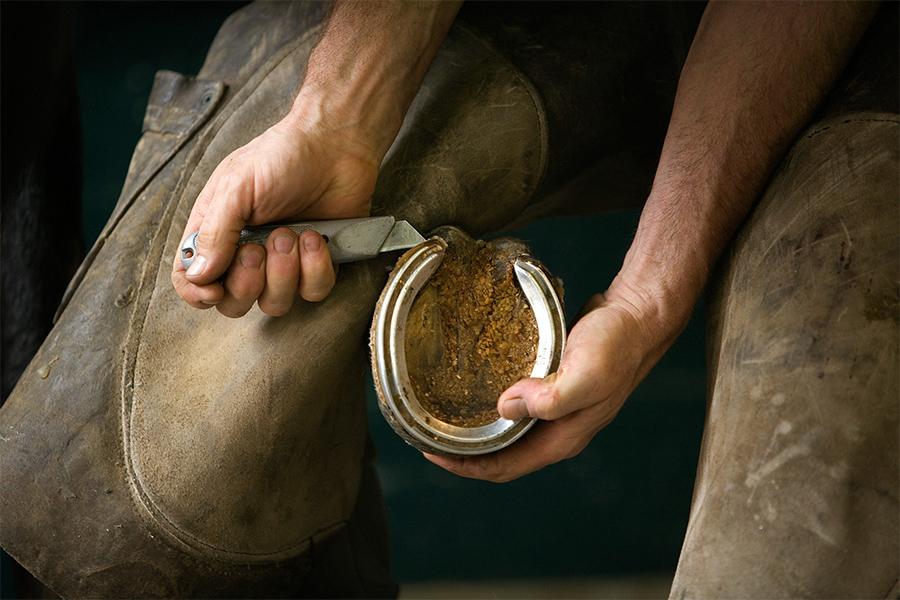
 The Cornell University Hospital for Animals is among a small number of equine hospitals across the country that provides farrier services for hospital and clinic patients, as well as shoeing appointments for horses across the region.
The Cornell University Hospital for Animals is among a small number of equine hospitals across the country that provides farrier services for hospital and clinic patients, as well as shoeing appointments for horses across the region.  Our service works with a wide range of specialists at the Cornell University Hospital for Animals including orthopedic surgery, internal medicine and anesthesiology to ensure your animal receives the most comprehensive care available in veterinary medicine.
Our service works with a wide range of specialists at the Cornell University Hospital for Animals including orthopedic surgery, internal medicine and anesthesiology to ensure your animal receives the most comprehensive care available in veterinary medicine.
 From there, he will work with veterinarian specialists to develop a plan for treating your horse that may include specialty shoes or splints.
From there, he will work with veterinarian specialists to develop a plan for treating your horse that may include specialty shoes or splints.